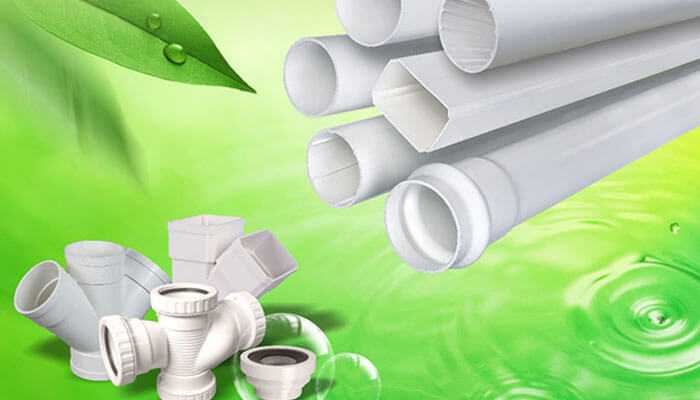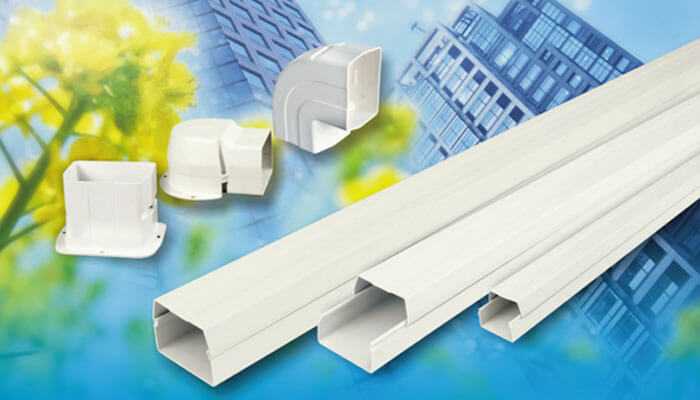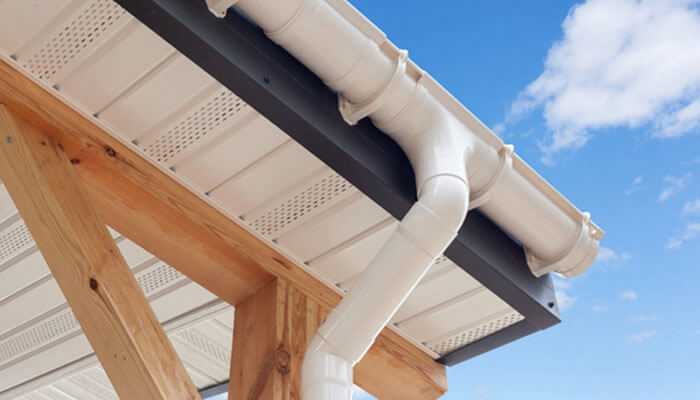In daily life, PVC pipes are very common pipelines widely used in residential and commercial buildings for water supply and drainage systems, electrical conduits, and agricultural irrigation. It is popular for its advantages of being lightweight, durable, cost-effective, and easy to install. What is PVC pipe? And why is PVC water supply pipe so popular? Let’s explore its composition, types, features, and reasons why it’s a top choice in many industries.
About PVC Pipe
1. What are PVC Pipes Made of?
Firstly, what does PVC pipe stand for? PVC pipe represents polyvinyl chloride pipe. It is a plastic pipe made mainly from polyvinyl chloride resin through extrusion or injection molding processes. In addition, various additives such as heat stabilizers, lubricants, and plasticizers may be added.
Thus, it can easily be shaped into various sizes and forms. This versatility enables PVC to meet the diverse needs of industries, from plumbing to electrical insulation.
2. What are the Types of PVC Pipes?
There are several types of PVC pipes for different uses:
PVC-U (Unplasticized PVC):
“U” represents unplasticized. This means that this type of PVC pipe does not contain plasticizers. Therefore, this PVC pipe is rigid and corrosion-resistant. It is commonly used for drinking water, sewage discharge, industrial water, etc. Due to the lack of plasticizers, PVC-U can be 100% recycled.
PVC-O (Oriented PVC):
This type of pipe has a layered structure after special treatment. It is known for its flexibility, high tensile strength, and impact resistance, making PVC-O pipe ideal for high-pressure applications such as irrigation or municipal water supply.
C-PVC (Chlorinated PVC):
This type of pipe is made by chlorination treatment of PVC resin. Better at handling higher temperatures, C-PVC is commonly used for hot water supply systems.
PVC-M (Modified PVC):
PVC-M improves toughness and impact resistance by adding special modifying agents. It is designed to resist impact, making it a solid choice in areas prone to wear and tear.
3. Key Characteristics of PVC Pipes
Understanding “what is PVC pipe” involves recognizing its key characteristics. Here are some notable features:
a. Lightweight: Easy to transport and install, even in complex piping setups.
b. Heat-resistant: Some types, like C-PVC, can handle hot water without warping.
c. High tensile strength: PVC pipes are strong enough to withstand significant pressure.
d. Wear- and corrosion-resistant: They resist damage from chemicals, moisture, and soil conditions, which ensures long-lasting performance.
e. Environmentally friendly: Some PVC pipes are recyclable, and their long life reduces the need for frequent replacements.
Common Uses of PVC Pipes
What is PVC pipe used for? Here are some of its applications:
1. Water Supply
PVC pipes are common in water supply systems, as they do not rust or corrode, ensuring the hygiene and safety of water quality. Which PVC pipe is best for water supply? PVC-U is ideal, as it offers excellent strength and long-lasting performance in cold water systems. You can also find essential water supply pipe fittings that complement these pipes, ensuring a reliable connection for your PVC water supply pipe system.
2. Sewage Systems
PVC pipes are also a hot choice for sewage systems, including the discharge of domestic sewage and rainwater. Its corrosion resistance and smooth inner wall help reduce blockages and maintenance costs. This is a significant advantage of large-scale sewage treatment networks.
3. Agricultural Irrigation
In farming, PVC pipes are used to irrigate crops efficiently. PVC-O pipes are preferred in high-pressure irrigation systems, as they handle the demands of large-scale water flow without leaks or breaks. In addition, they have good UV resistance and are suitable for application in outdoor environments.
4. Cable Insulation
PVC pipes provide excellent insulation for electrical cables. Their non-conductive properties and resistance to external damage ensure that electrical systems remain safe, whether underground or in buildings.
5. HVAC Systems
PVC pipes are also frequently used in HVAC systems to manage airflow and coolants. Their ability to handle temperature changes and resist corrosion makes them an excellent fit for air conditioning systems.
Where to Order PVC Pipes?
Knowing “what is PVC pipe” ensures you choose the best materials and suppliers for your project. Are you looking for reliable PVC pipes? LESSO is a name you can trust. As a leading manufacturer in China, LESSO has built a strong reputation for providing high-quality products that meet the demands of many industries, from home construction to municipal water systems.
They provide different pipeline solutions for various applications, such as PVC pipes for water supply that are hygienic, corrosion-resistant, long-lasting, and environmentally friendly. The pipes used for sewage treatment and rainwater discharge have a high flow rate, low installation cost, long service life, and maintain long-term operation of the drainage system.
In addition, they also provide different specifications of electrical pipes, floor heating pipes, irrigation pipes, etc. to meet the different needs of customers.
FAQs
1. Is PVC Pipe Suitable for All Types of Water?
PVC pipes work for most water types, including drinking water, irrigation, and sewage. For hot water, use C-PVC, as it handles higher temperatures. For cold water, PVC-U pipes are ideal. Be sure to choose the right type based on your system’s temperature and pressure needs.
2. What is the Service Life of PVC Pipes?
PVC pipes can last 50+ years under normal conditions thanks to their resistance to corrosion and pressure. With proper installation and maintenance, they may last even longer in stable environments.
3. How to Identify High-quality PVC Pipes?
Check for certifications and industry standards. High-quality pipes should have smooth surfaces, even thicknesses, and no cracks. Choose reliable manufacturers like LESSO for durable, tested products. They have a stricter quality control system and comprehensive after-sales service.
Conclusion
What is PVC pipe? Now, you may have a clear understanding of it. PVC pipes are an essential part of many systems, from water supply to sewage and irrigation. Their long lifespan, versatility, and ease of installation make them a top choice across industries.
For reliable and high-quality PVC pipes, LESSO stands out as a trusted manufacturer. With its extensive product range, strong focus on innovation, and proven durability, LESSO offers the perfect piping solution for any project. Contact them now and get an appealing quotation.




